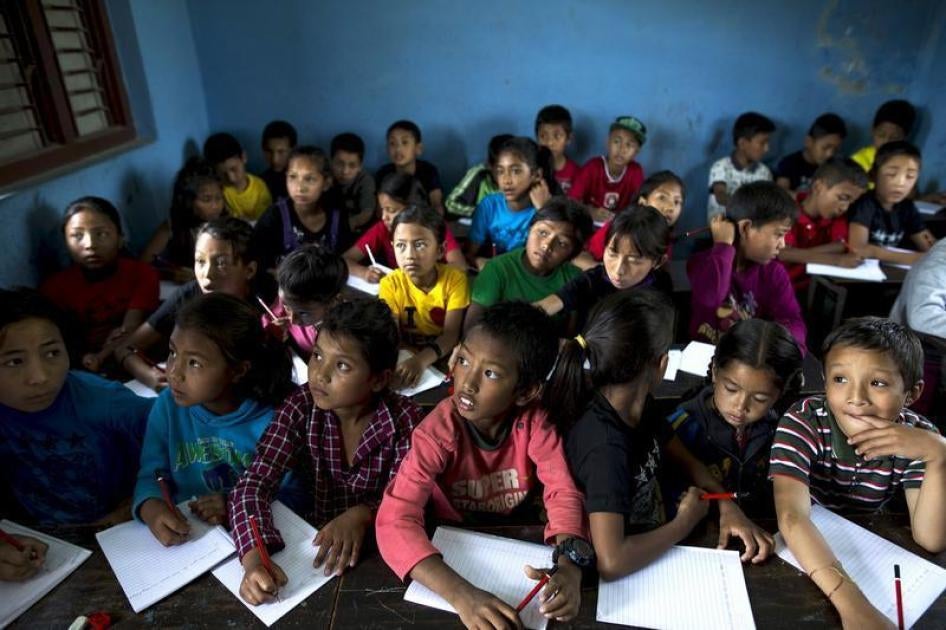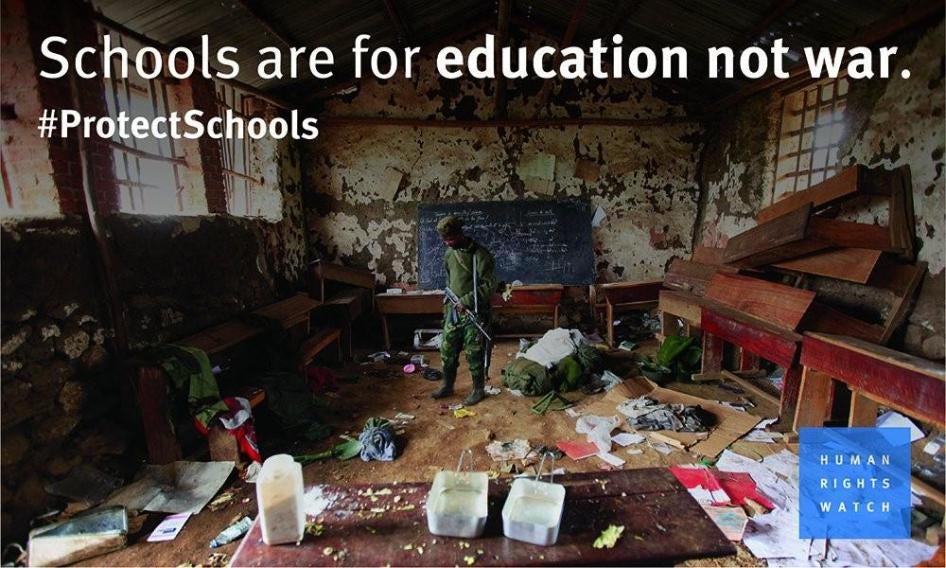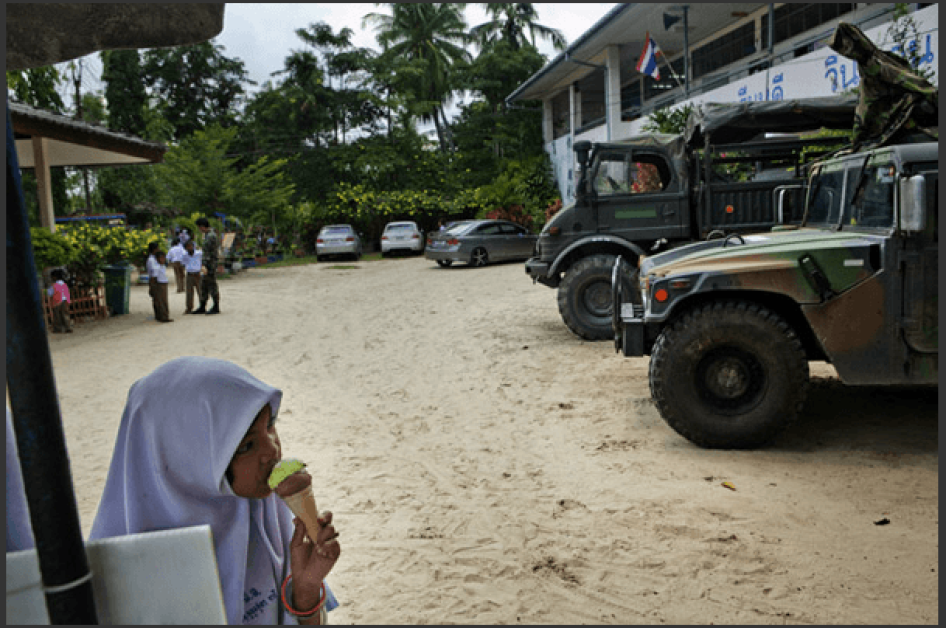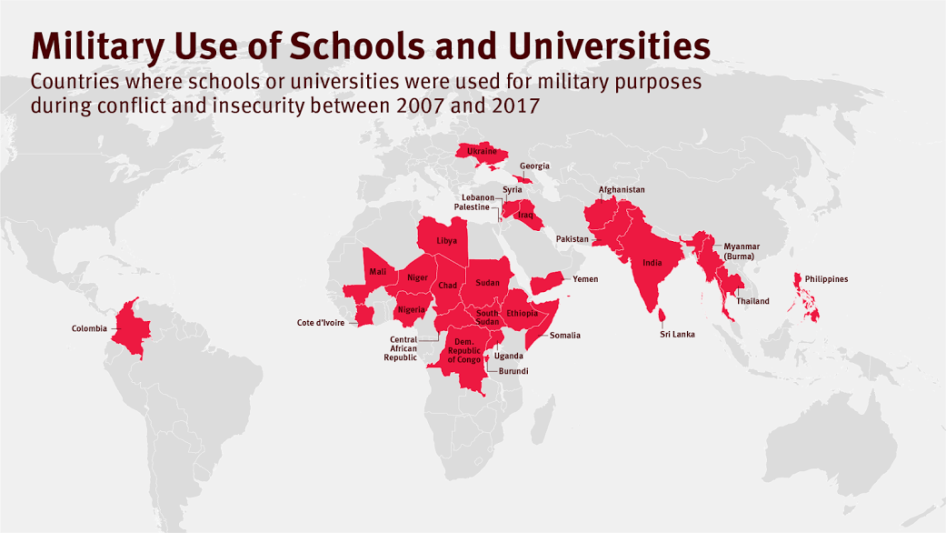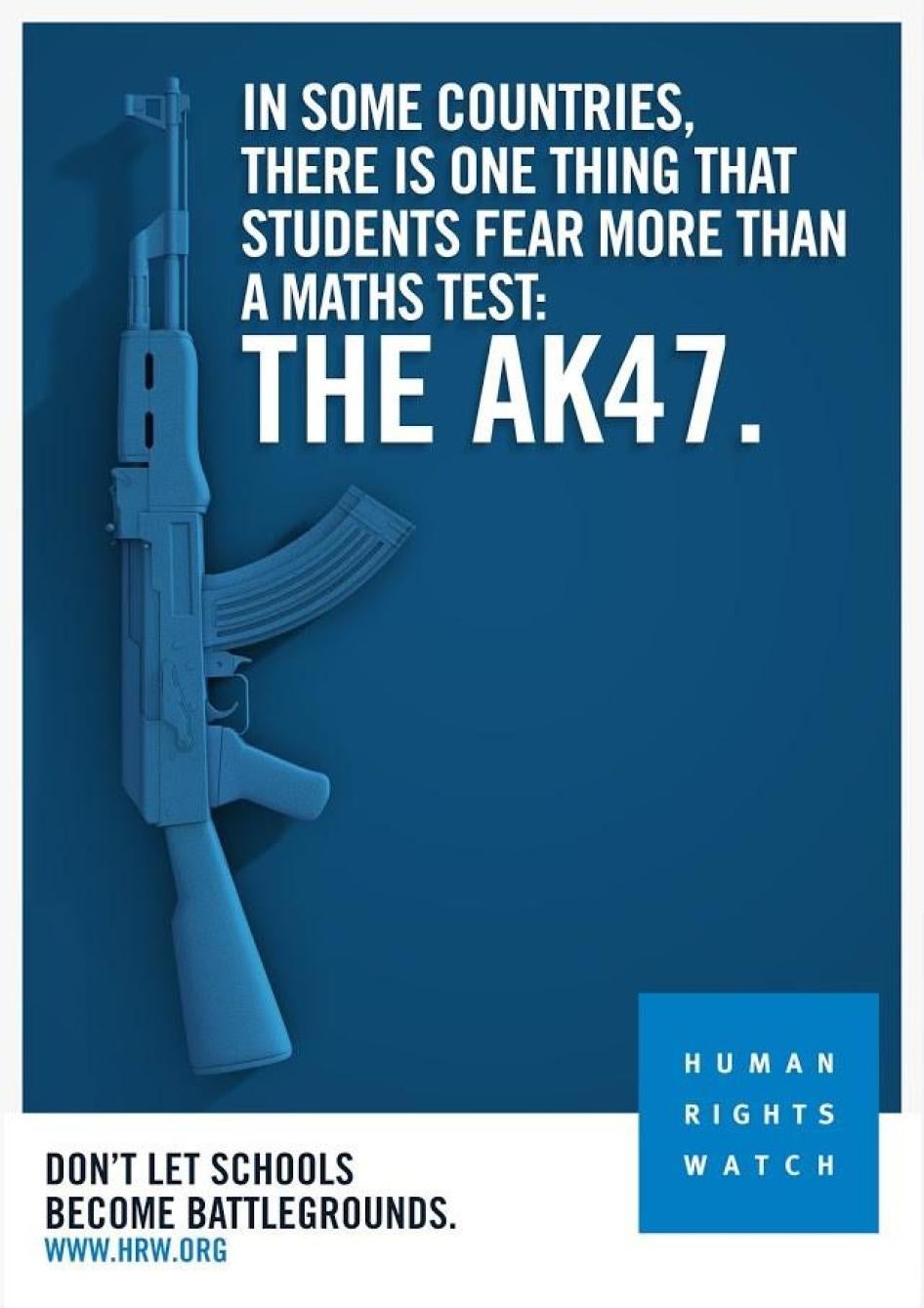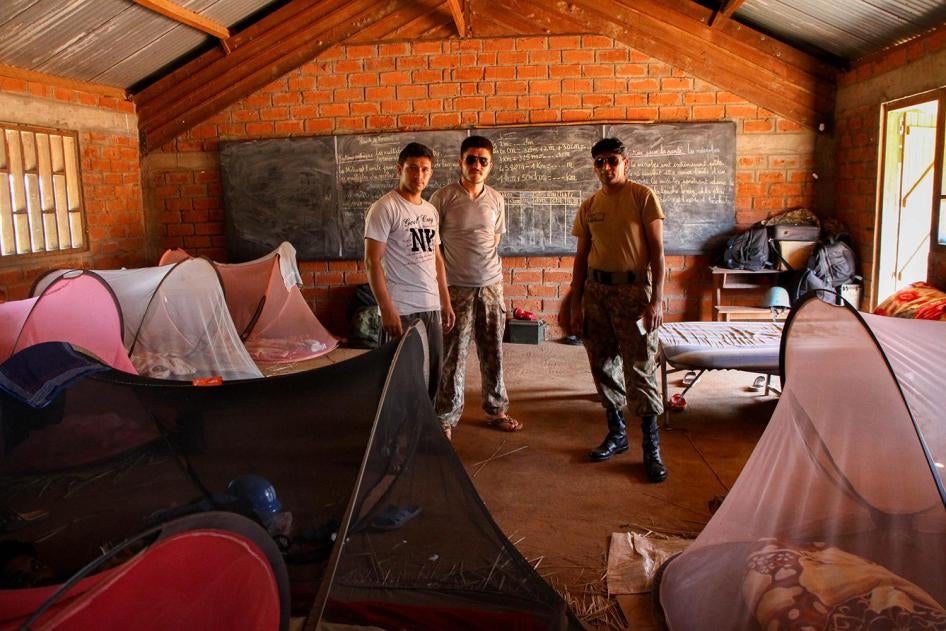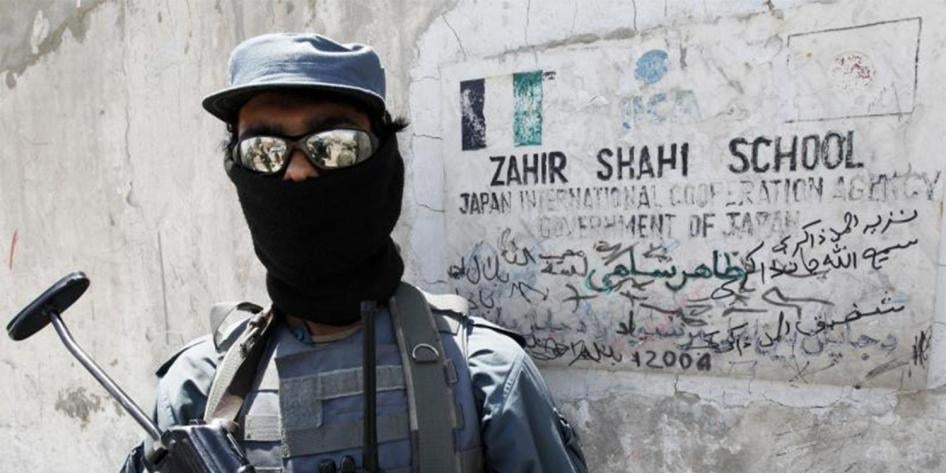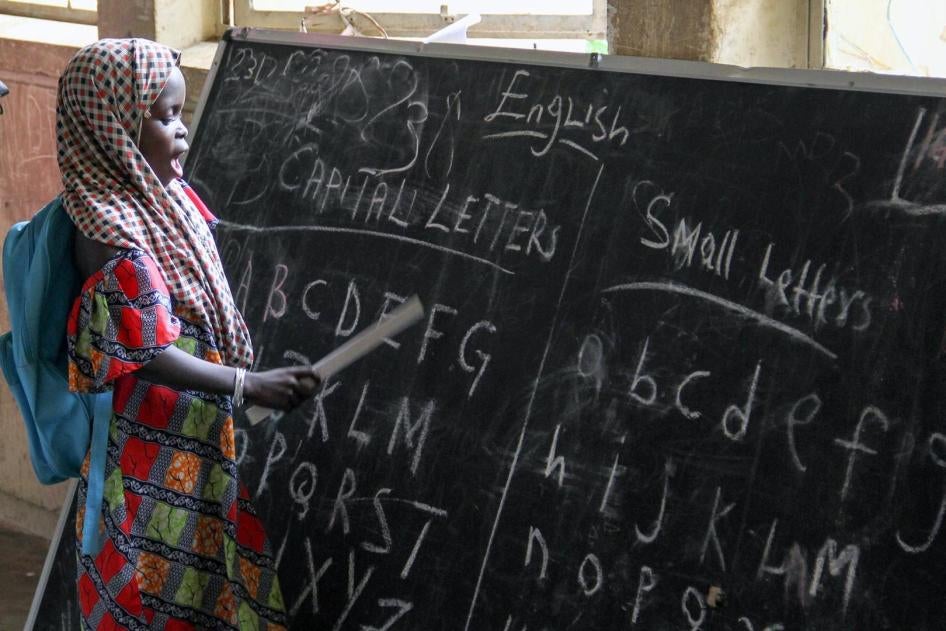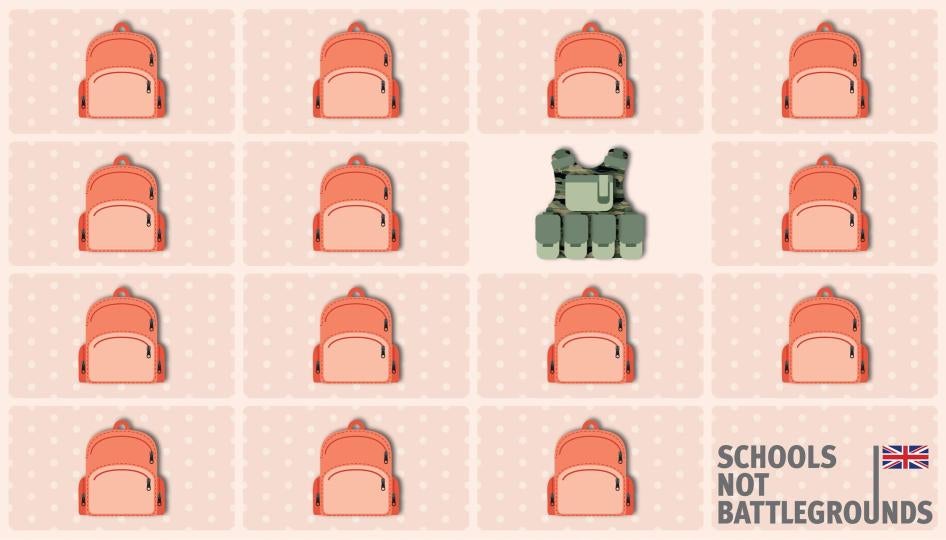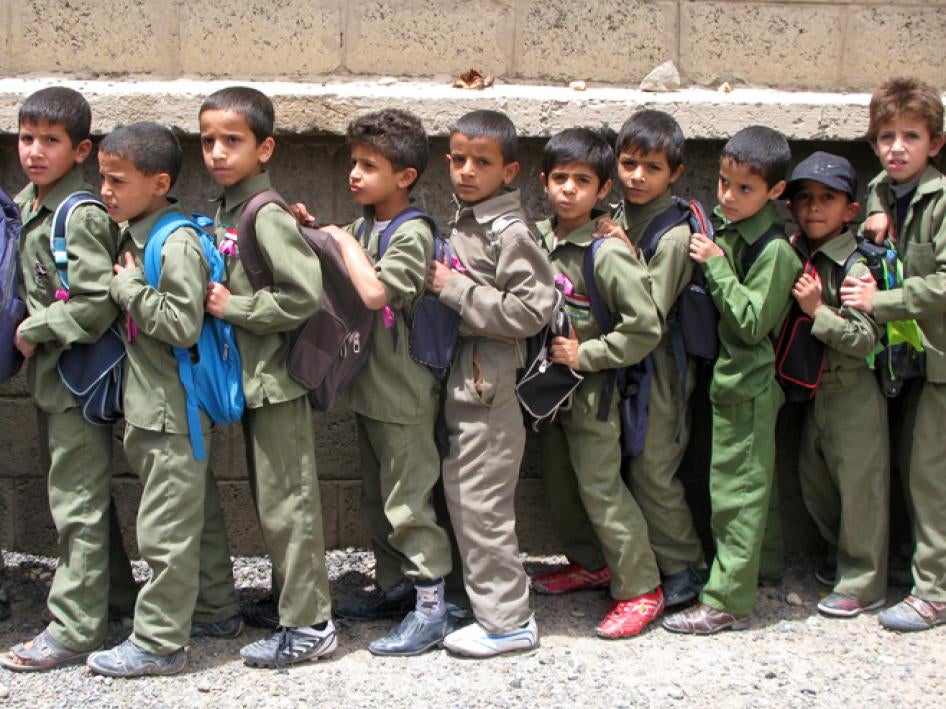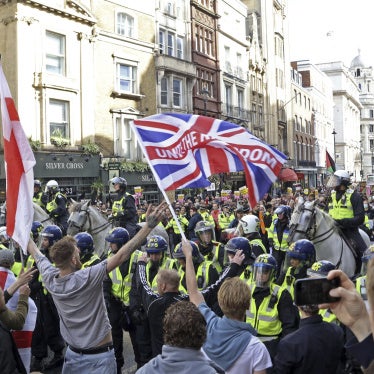Schools should be a sanctuary - a place where children can learn, develop and play with their classmates, and prepare for their future lives in society. Education is a right for every child in this world, no matter where they live or how poor they are.
But for too many children around the world, school have become battlegrounds. In many war-torn countries, schools are being attacked by government soldiers or rebel groups. Schools have been bombed, shelled and burned, and children and their teachers have been killed, injured or kidnapped.
Some schools are not attacked, but instead get occupied by fighters, who use classrooms to store their weapons or for soldiers to sleep. At first glance, a school can appear to be a comfortable, convenient, or safe place for soldiers to stay.
But as well as frightening the children and making an attack more likely, having soldiers in schools puts girls at risk of sexual assault, while boys face being recruited to fight.
Human Rights Watch wants to change this. We want all schools – no matter where they are – to be a place of sanctuary and safety.
This might sound impossible to achieve. After all, war may be inevitable. But we can still ask every government in the world to promise to protect schools from attack, and tell their troops not to occupy schools, no matter how briefly.
The Safe Schools Declaration is a political promise that 66 countries around the world have now made. It is not a binding treaty, but a pledge that signals a government’s firm intention to not attack schools or put them at risk. Countries that join the Safe Schools Declaration are helping define a powerful new global goal that insists schools should never be targets in war.
The Safe Schools Declaration could help save the lives of hundreds of students and teachers every year. It could also help encourage children safely back to class, especially those who survived attacks or are too scared to travel to school because of fighting.
This is vital, because school is especially important for children who live in a war zone. Going to class offers a chance for kids to have a sense of calm and routine amid the chaos, and learning can provide a welcome distraction.
If fighting grinds on for many years, like in Syria or Afghanistan, it’s important that children’s schooling doesn’t stop. Because when peace returns, a country cannot rebuild itself without a younger generation that’s educated, motivated, and ready to join the workforce.
Of course, war is an ugly business, and just because government soldiers won’t attack a school, this doesn’t mean rebels won’t. But the Safe Schools Declaration increases the scrutiny of and response to this terrible tactic. And countries that have joined the Declaration can share with each other the best ways they’ve found to protect students and schools from attack.
The Safe Schools Declaration is already making a difference on the ground.
In the Central African Republic, where ethnic fighting erupted more than two years ago, UN peacekeepers have been told by their commanders never to use schools as barracks again, after Human Rights Watch found UN troops sleeping in primary school classes.
In Afghanistan, where at least 40 schools were attacked in 2016, the Education Minister is demanding government soldiers stop occupying schools and, in doing so, making them targets.
And in Nigeria, where hundreds of schoolgirls have been kidnapped and held as slaves by rebel groups, the government is working hard to better protect its schools.
A total of 66 countries have joined the Safe Schools Declaration, including Britain’s long-time allies France and Canada. But so far, the UK has not joined.
This is not because British soldiers have unlawfully attacked schools when they’ve been fighting in other countries. Far from it. In fact, the UK armed forces already operate in line with the Safe Schools promise. But by signing up to the pledge, Britain would be sending a very strong message to other countries and other armies.
The UK has been a champion on many children’s issues. It has worked to prevent child marriage in Bangladesh. It has given money to help Yazidi girls who were raped in Iraq. And it is supporting young Syrian refugees in camps in Jordan.
Now we’re asking the British government to make this new and powerful promise: that on the UK’s watch, no child should ever be attacked at school.
